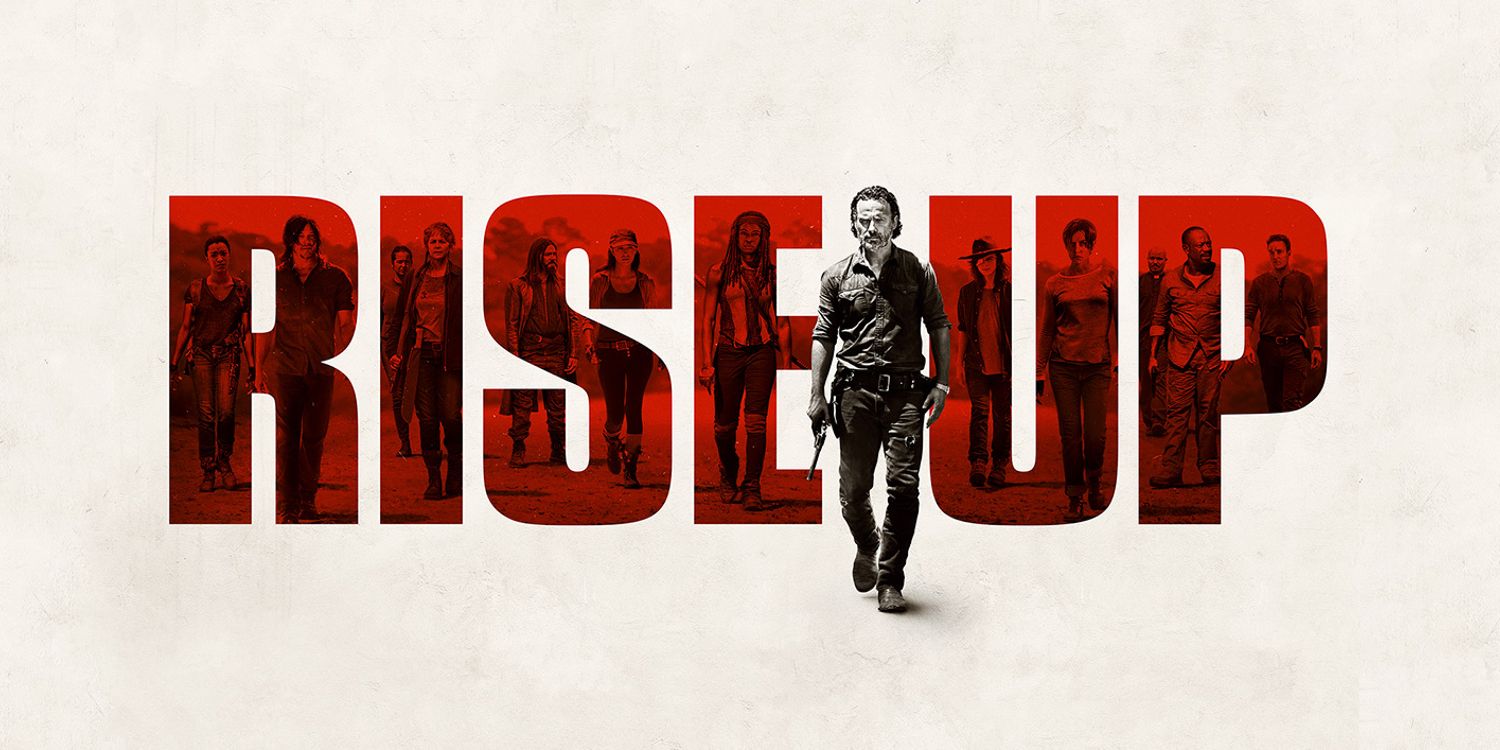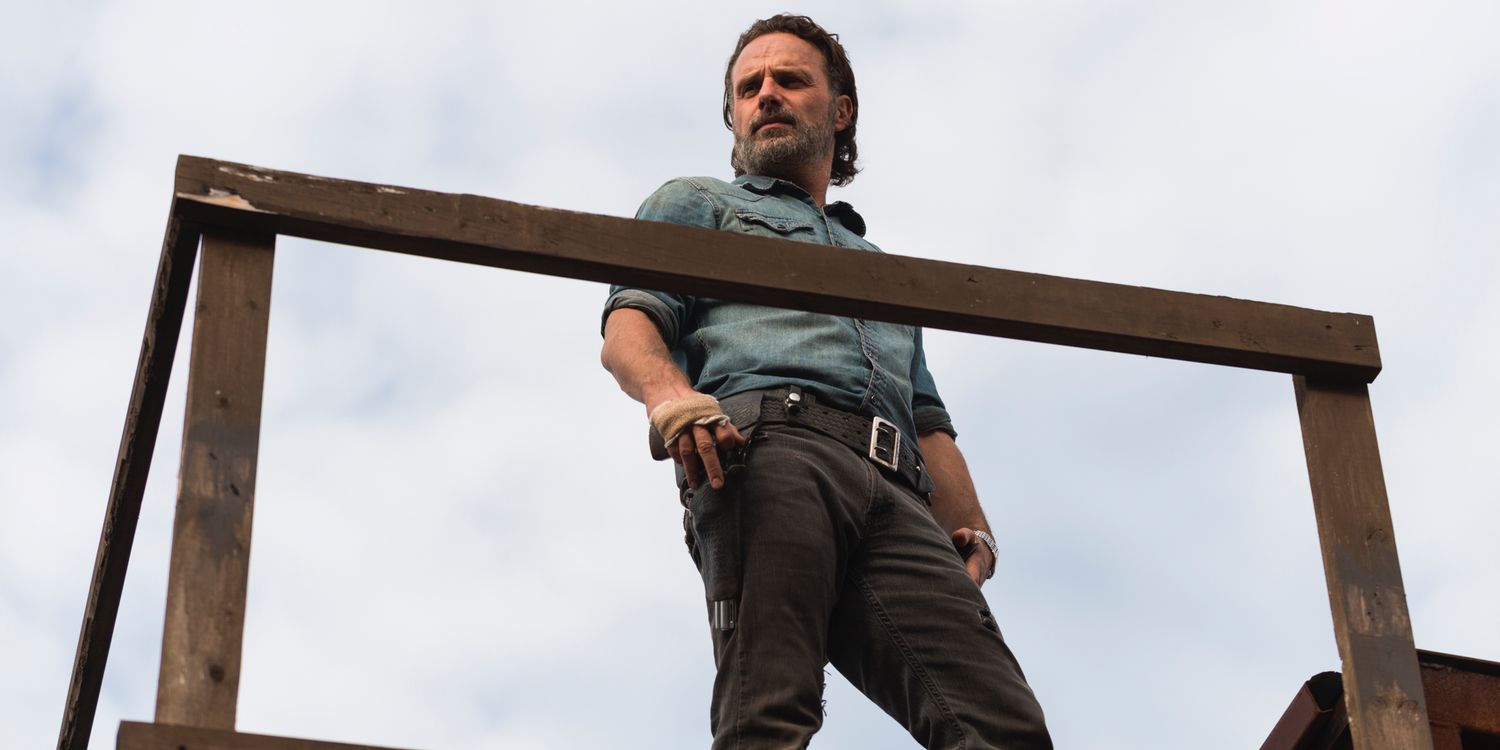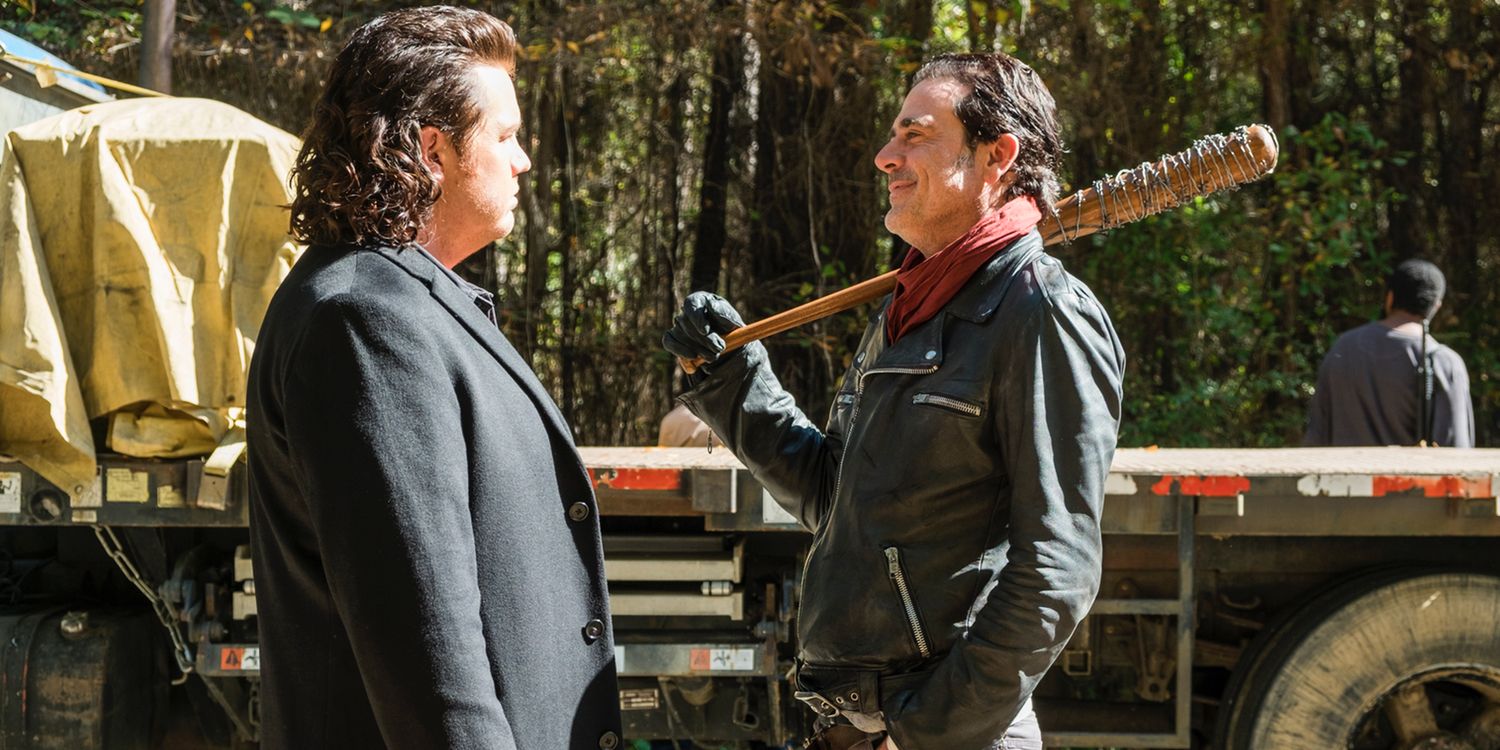Season 7 of The Walking Dead has been something of a slog at times. After a torturous off-season in which fans were forced to wait and wonder which character would fall victim to Jeffrey Dean Morgan's over-the-top turn as the bat-wielding villain Negan, the show returned with a brutal assault on the audience that further delayed its payoff for before finally quenching viewers' bloodlust. Since then, season 7 has been about the build-up to a conflict everyone saw coming. Yet over the course of 15 episodes, the show never actually delivered that conflict to those still watching, choosing instead to repeatedly underline the type of person its newfound big bad was – just in case the idea that Negan is a schoolyard bully par excellence proved too subtle after his five-minute tirade in the divisive season 6 finale.
The Walking Dead season 7 has been stuck in what Seinfeld would describe as the "yadda, yadda" part of the story. It's been so concerned with filling in every nook and cranny between Negan's arrival and Rick's eventual war with him and the Saviors that it has left the actual season without any time to depict the war itself. That means the conflict that was promised will likely unfold in season 8 (if viewers are lucky), making season 7 one long, drawn-out run-up to the exact kind of battle that could have turned perception of the series around when it needed it the most.
Despite the fact that 'The First Day of the Rest of Your Life' can't save the season, it still plays an important part in offering the audience evidence that The Walking Dead writers know where the show is headed and that there is a plan to not only pay off the immediately pressing struggle against Negan and the Saviors, but also deliver a sense that the series and its characters are headed toward something more meaningful than simply surviving another day. In doing so, Negan's arrival can still have significance beyond acknowledging which actors are no longer on the show. It can point to the idea that the world in which these characters exist can be rebuilt, but that it's up to them to avoid becoming the same wicked authoritarians as their greaser-styled adversary.
As far as the finale is concerned, however, those types of questions are better suited for another day as war finally breaks between the Saviors and the other survivors, providing one of the most action-packed finales in recent memory. After so many hours of stalling and spinning its wheels, The Walking Dead ultimately does what comes naturally: it slowly leads the audience in one direction before hitting them with a surprise in the episode's closing moments. The move has been a particular favorite of the writers since Rosita and Sasha took their ill-advised road trip to the Sanctuary. This time, though, the extra-long episode means an extra-long wait until the excitement is locked and loaded, which is, admittedly, a bit of a drag. But it also means that when all hell breaks loose, it really does break loose.
That doesn't necessarily forgive the excruciatingly long road it takes to get there, though. Viewers still have to sit through another interminable Negan speech where he praises Sasha for being so dignified and tells her how much he respects her, and how it wouldn't matter if she were a man, his feelings would be the same. Negan's been doing a lot of speechmaking this season and after he's done, one question always lingers: How the hell did this guy get to be in charge, much less maintain his position with such relative ease? It doesn't matter if he's talking to a single person or a whole crowd of Saviors; the guy fails to come off as menacing or authoritative on any level. Maybe that's the intention of the character, that he's a giant, obnoxious dork with a baseball bat and a leather jacket, but it doesn't seem as though that's how The Walking Dead wants him to come across. That disagreement of intent and end result hasn't been around all that much these last few episodes, but it undermines his every action in the finale.
Undermining Negan is kind of the point of 'The First Day of the Rest of Your Life', so it helps that his inner dork stands out like that red scarf he wears when he wants to look extra intimidating. But even when a villain like Negan is meant to taste defeat it still needs to feel as though the heroes have overcome a great adversary. None of that's present in the finale, though. There's no real sense of tension. Whether it's because Rick and co. (and the audience) have finally earned a reprieve from the unrelenting misery of their situation or what, it never felt as though the hour was going to go any differently than the way it did. It's fulfilling, in a way, considering Rick and the other communities rallied together to push Negan out – there was even a tiger eating the face off one of Negan's men – so why did the victory feel so hollow?
There were deaths, as is usually the case with finales on The Walking Dead. This time it was Sasha, whose sacrifice was the only part of the hour that carried any emotional weight, particularly because it felt as though she'd finally risen above the short shrift the character had been given since she first appeared. Her plan, to become a spring-loaded zombie in Negan's coffin, aka the box of narrative necessity, worked like a charm and the episode's technique of filling the frame with Sonequa Martin-Green's face while she listened to some Donny Hathaway and reminisced about Abraham set the tone for her departure and suggested that even with the loss everything would be okay. Surprisingly, that's where 'The First Day of the Rest of Your Life' excelled. At making one character's death feel like it meant something after so many of them have increasingly felt like distractions from a go-nowhere plot. In the end, Sasha's death also provided a necessary distraction, one that let Rick and his crew turn the tables on the duplicitous Jadis and her junkyard kids, and finally push back against the bully in the schoolyard. It's just too bad the rest of the hour wasn't as effective as losing Sasha.
Negan's defeat and eventual escape results in him calling for all out war, which would be appealing and maybe even a little frightening if it weren't the same promise The Walking Dead ends every season making. Despite the high note of the heroes' victory against the Saviors, the finale winds up feeling empty because after all the big bad was supposed to bring to the series, it turns out he doesn't really offer viewers anything they haven't seen before.
Next: The Walking Dead: Is Eugene Still Loyal To Rick?
The Walking Dead will return for season 8 in the fall of 2017.
Photos: Gene Page/AMC



